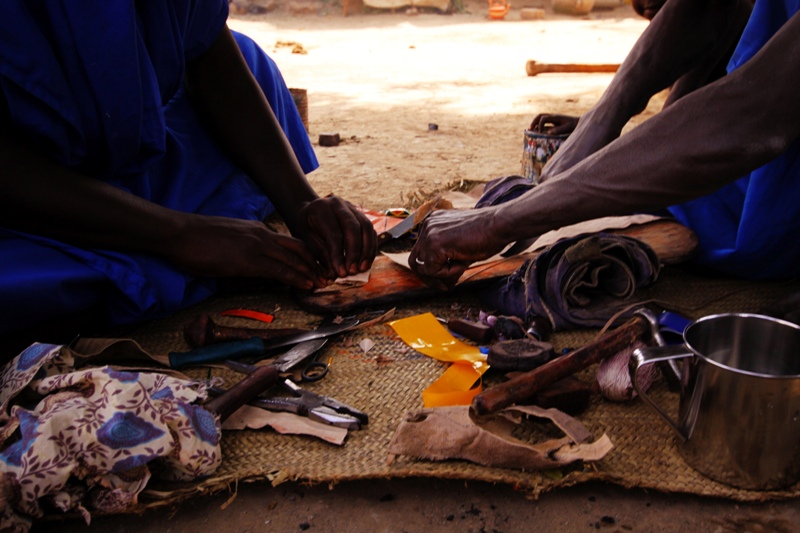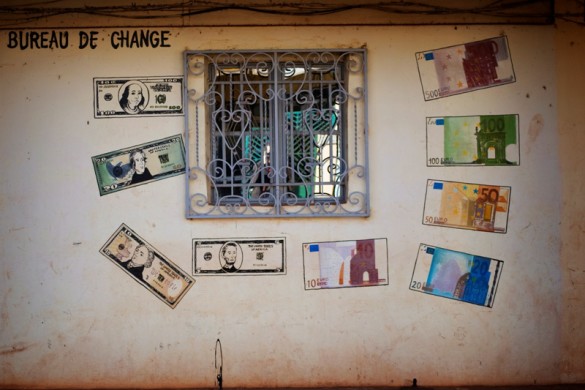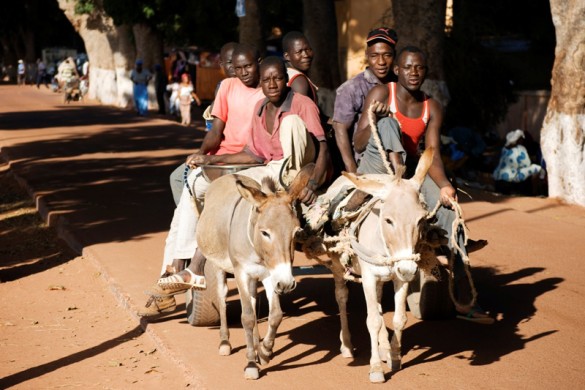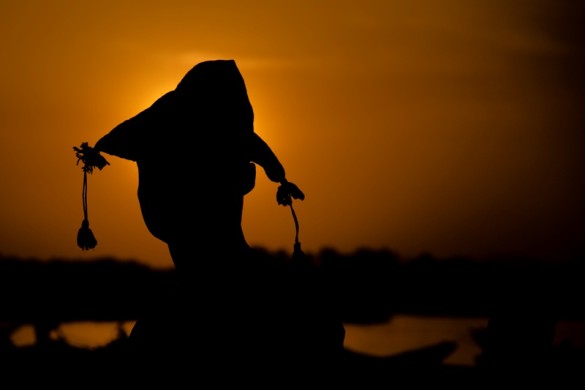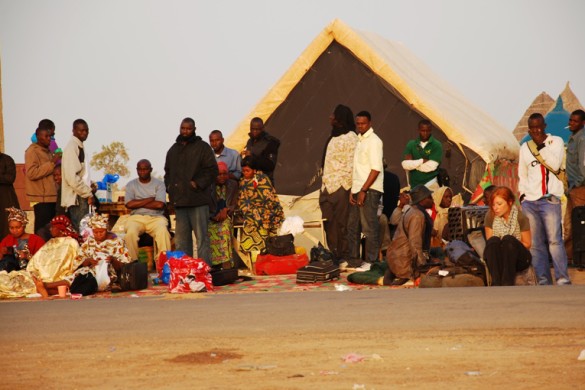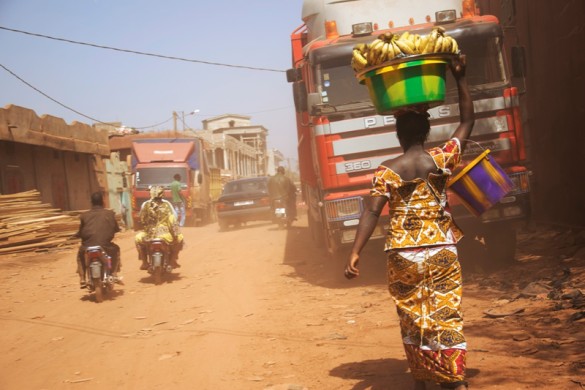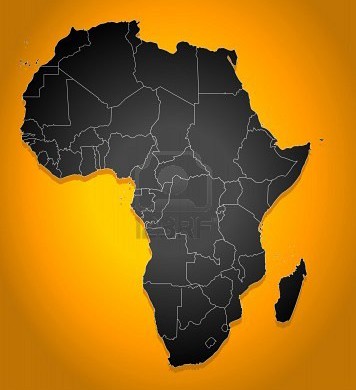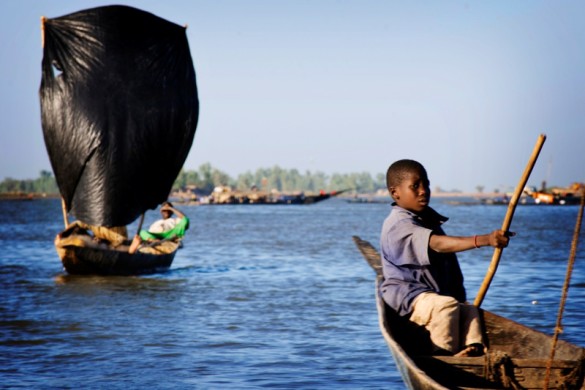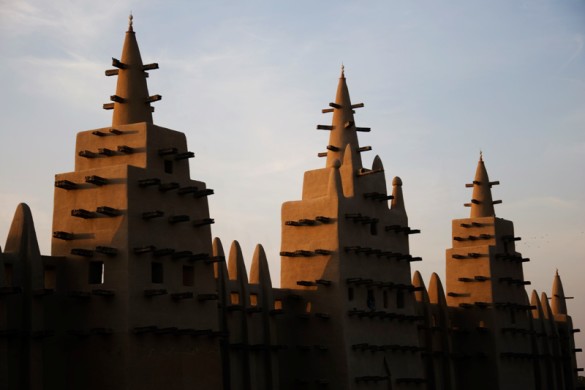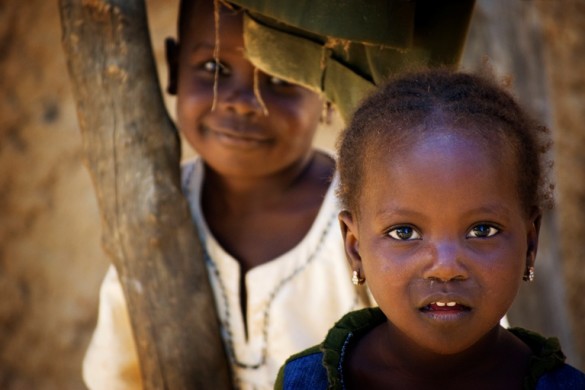When I made the transportation arrangements, I was under the impression I’d board the taxi in Segou and exit in D’Jenne. Instead, we were dropped off on the opposite side of the river and told to board a ferry. Once we made it across, we would need to hitchhike or hire a taxi to take us the last 5km. Awesome. That’s just what I wanted to hear after selling my left kidney for the ride.
The ferry operator charges a small fee for cars, but it’s free to passengers, or at least that’s the way it’s supposed to be. Within minutes we were asked for money. I suppose you could say the theme of the day was, “Leslie and Rich get screwed” because when we challenged the request, we were told to get off. I wanted to grab our things and go, just to prove a point, but seeing as how we’d have to hire a pirogue instead, I buckled. I was short on change, so he settled for less, which made me feel a little better about the situation – only a little, though.
While on the ferry, we struck up a conversation with an American student by the name of Gaby. She’s from the Midwest, but spending several months in Mali, studying the archaeological site of Jenne-Jeno. She was nice enough to give us a lift and offer some insight on the area – thank you, thank you, wherever you are.
D’Jenne is an interesting place. It’s well known for its unique architecture and grand mosque, which happens to be the world’s largest mud-built structure. The town is considered one of the oldest in Africa and was part of the Trans-Saharan trade route, due to its close proximity to Timbuktu. Much of the salt, gold, and slaves that were transported between the 15th-17th centuries, passed through. It’s also home to numerous Quranic schools – there are said to be more in D’Jenne than anywhere else in Mali.
We were lucky enough to spend a few days roaming the town and nearby Bozo and Fulani villages. With the help of our guide and two motorbikes, we had a fantastic time. We learned a lot about the history, people, and customs. While visiting one of the villages, we both received custom ‘juju’ from a craftsman. If you’re not familiar with the African term, it refers to supernatural powers ascribed to an object, and the practices associated with it. I prefer to call it a good luck charm, but that’s just me. Supposedly inside of our tiny leather charms, there is a verse from the Quran, and that the maker selected each verse by what he saw when looking into our eyes. Now, I don’t recall any magical moment where the depths of my soul were exposed, but then again, what do I know?
When I wasn’t strapped to the back of a bike getting burnt to a crisp, I spent my time playing soccer with little boys and teaching clapping games to little girls. I can assure you there are worse ways to spend your days.

